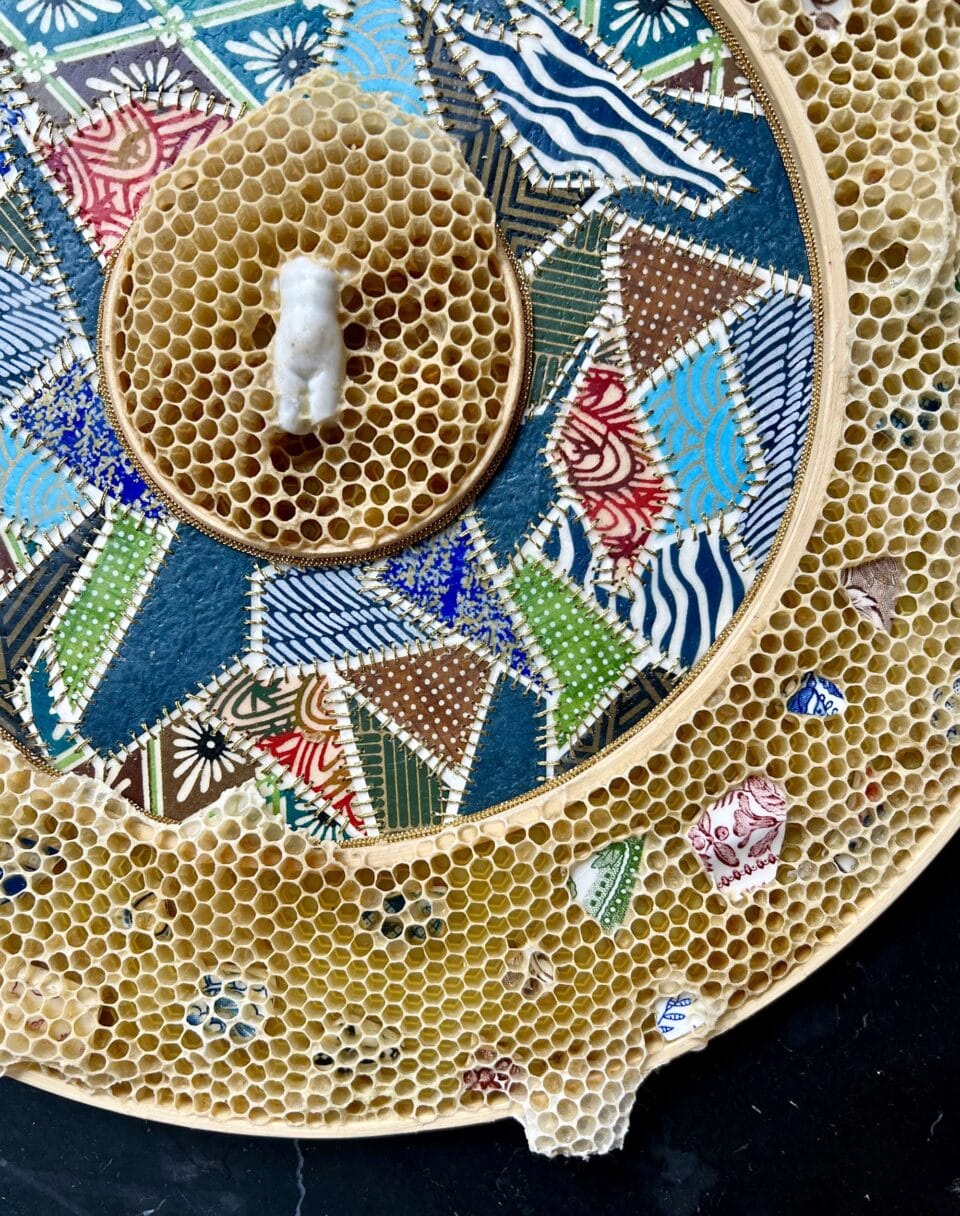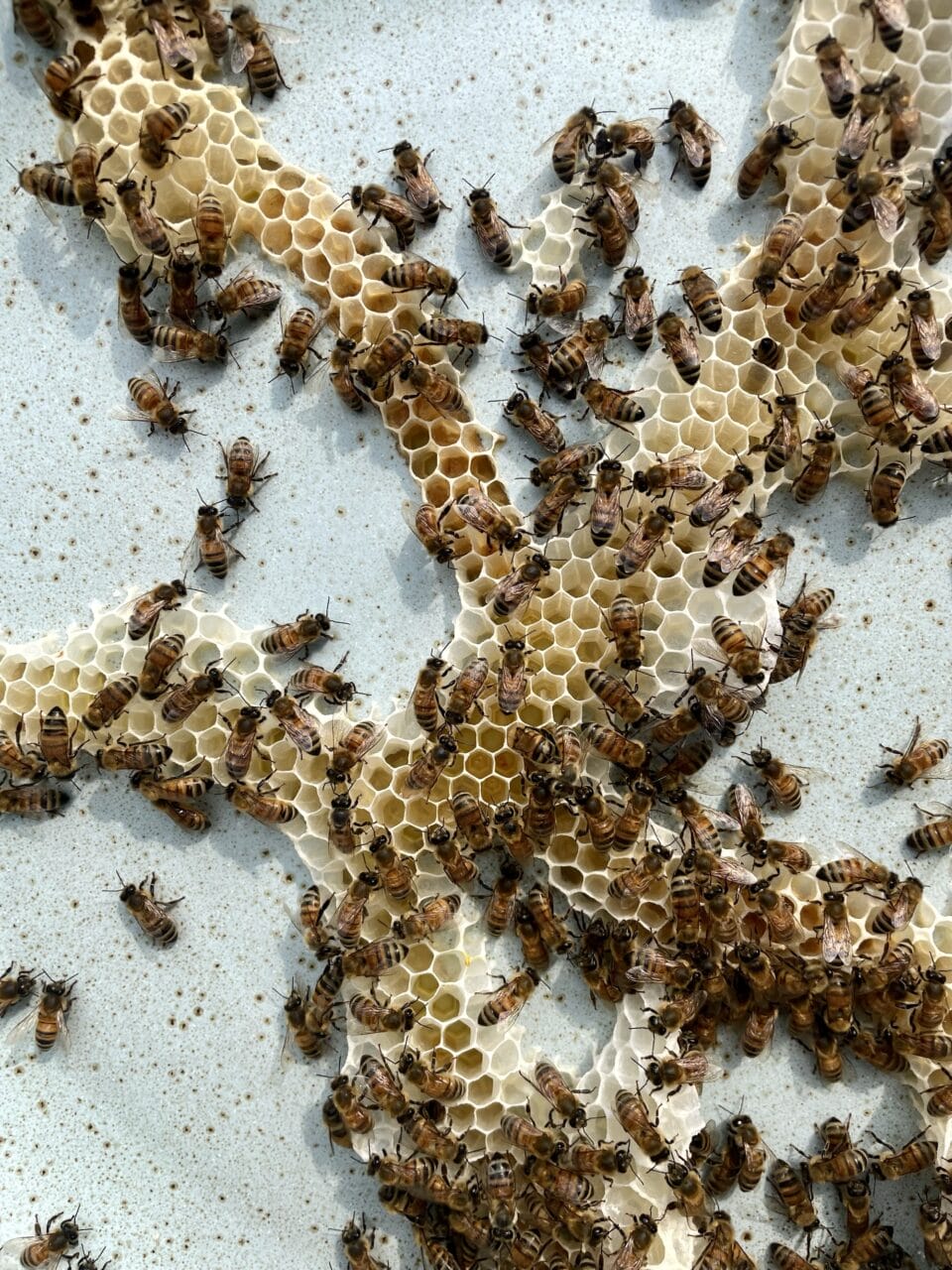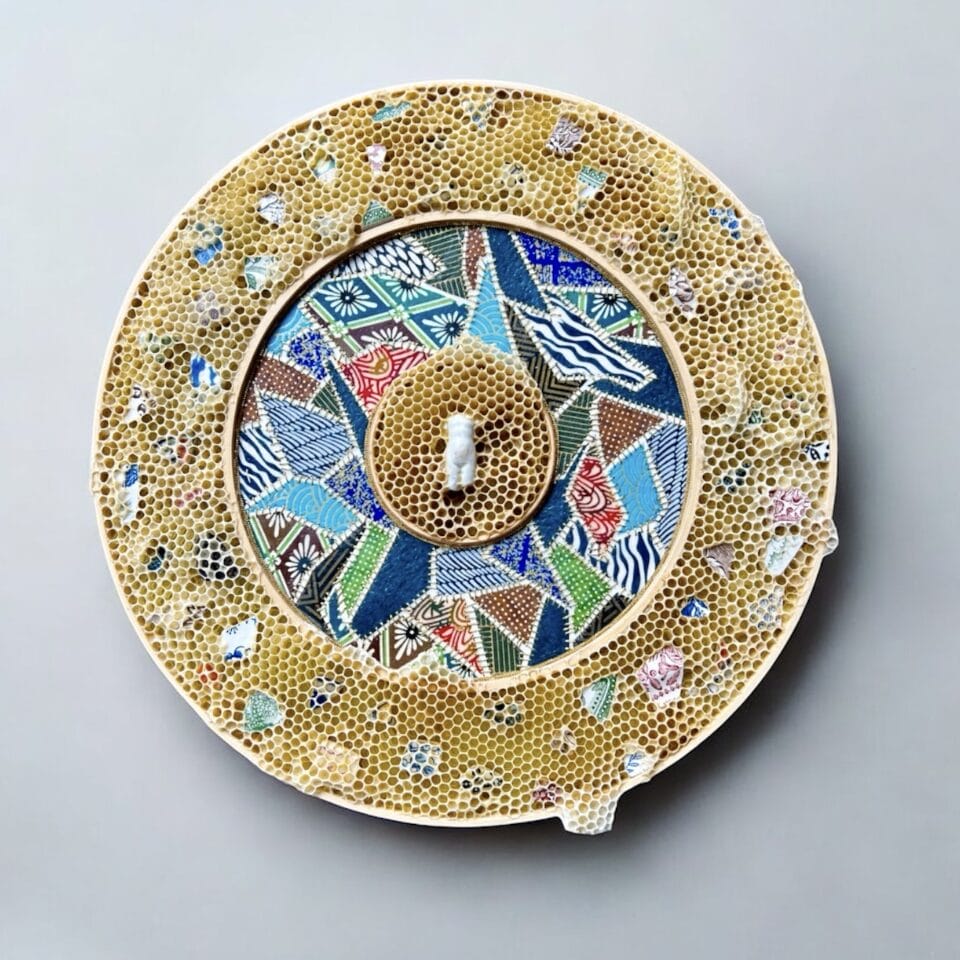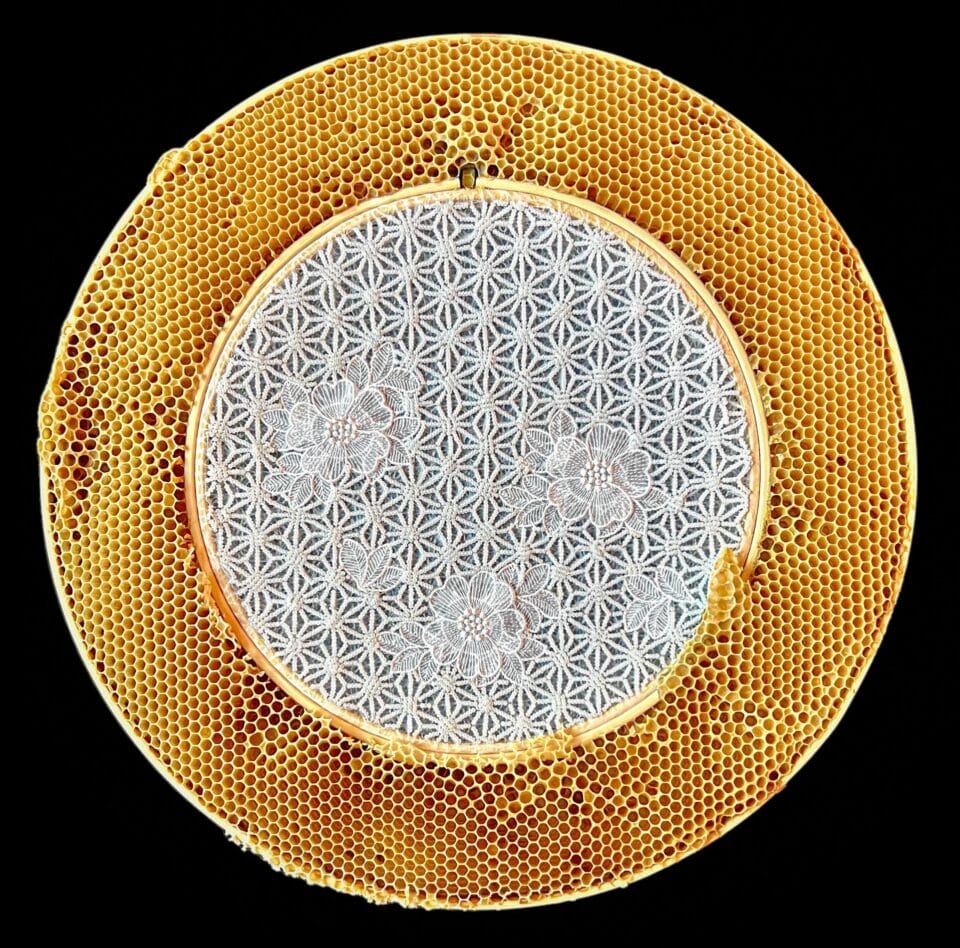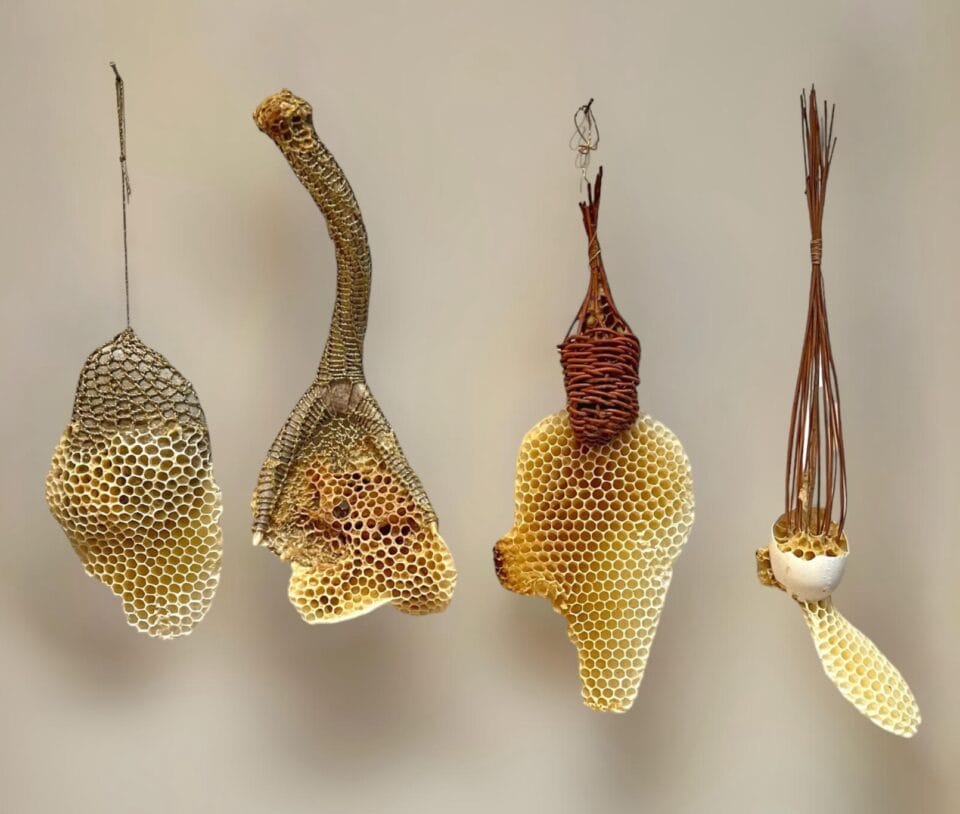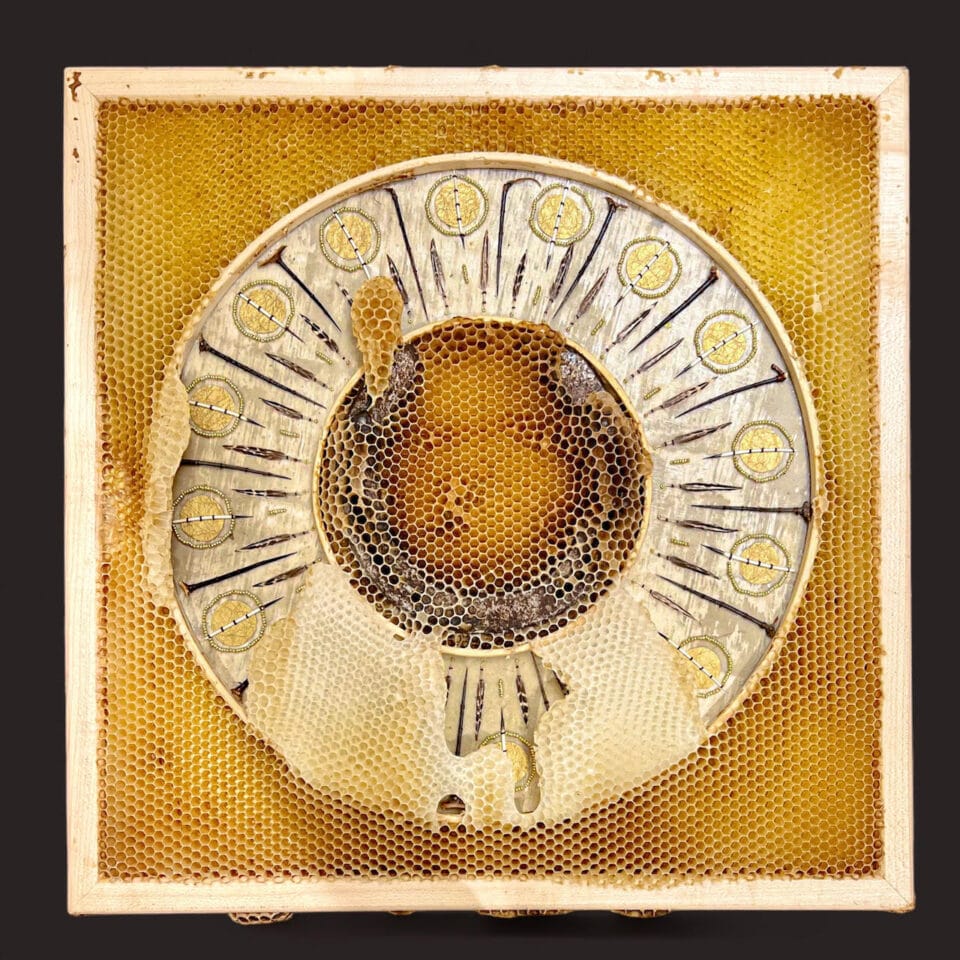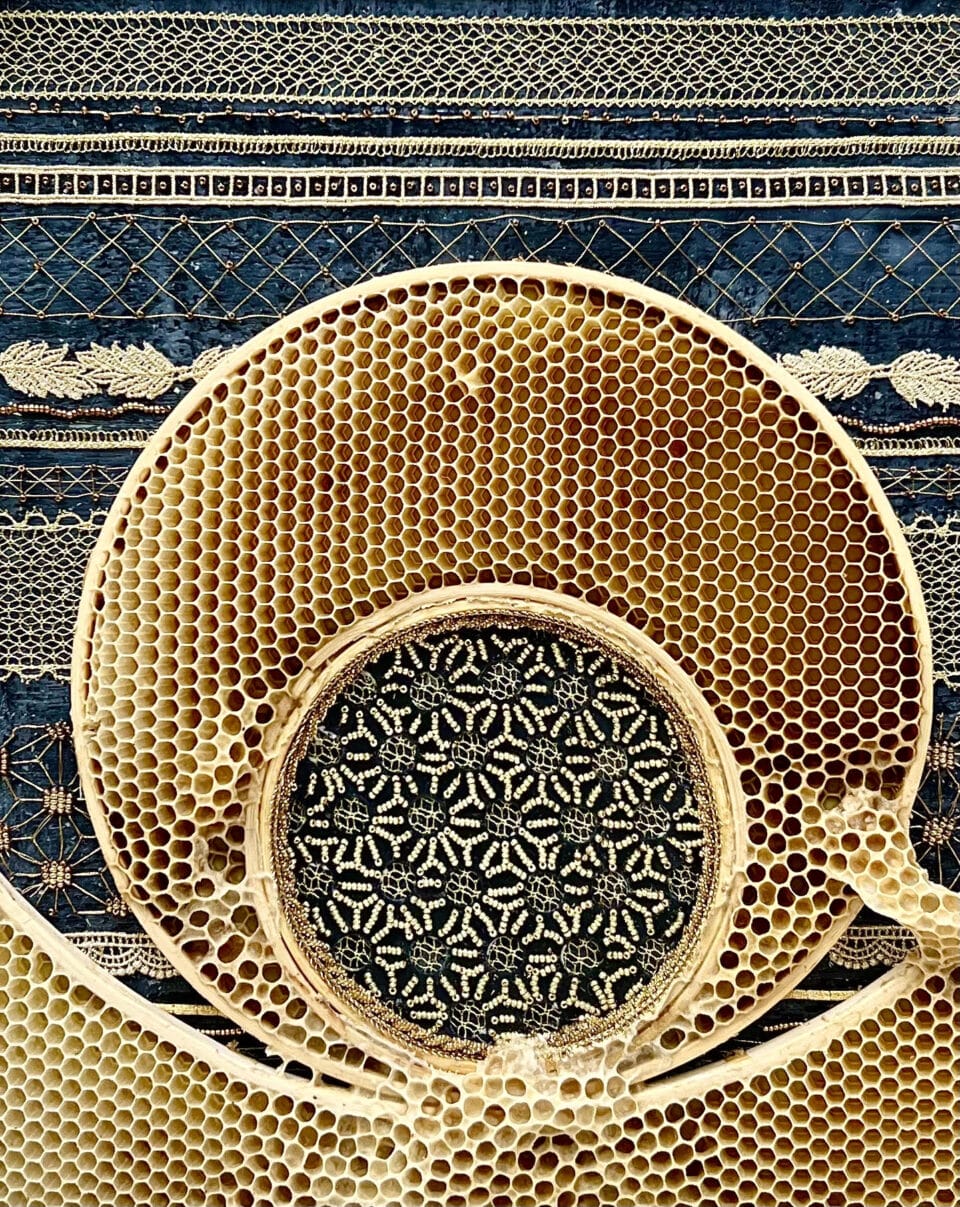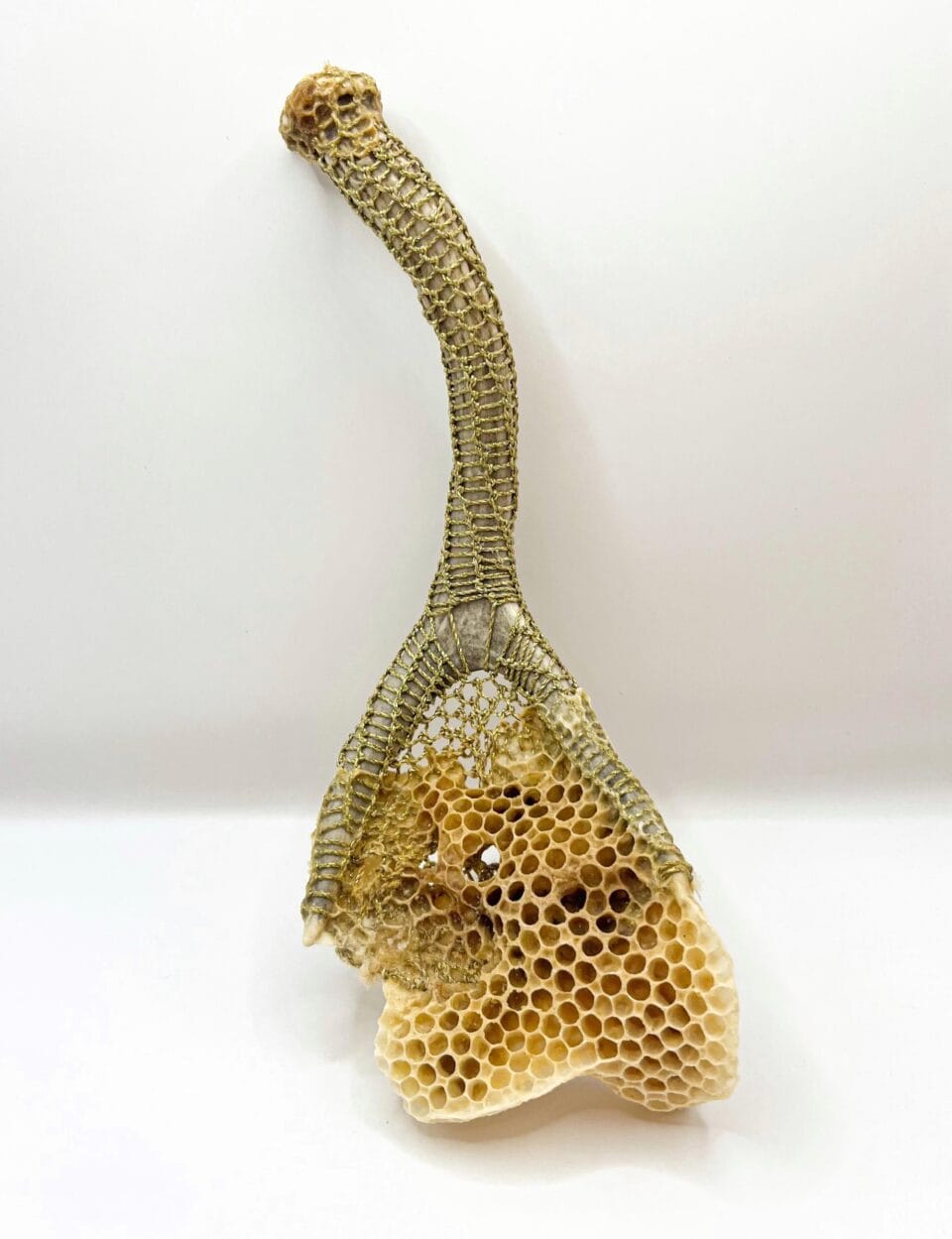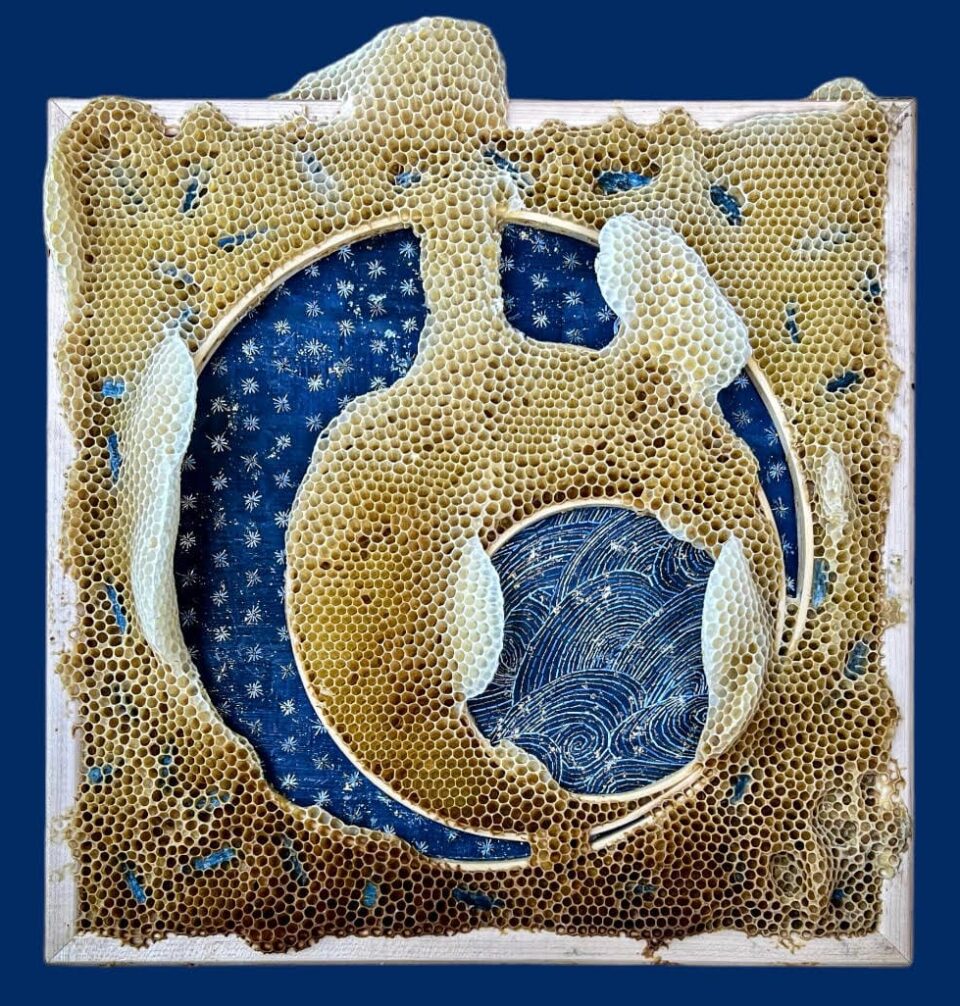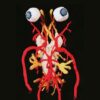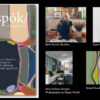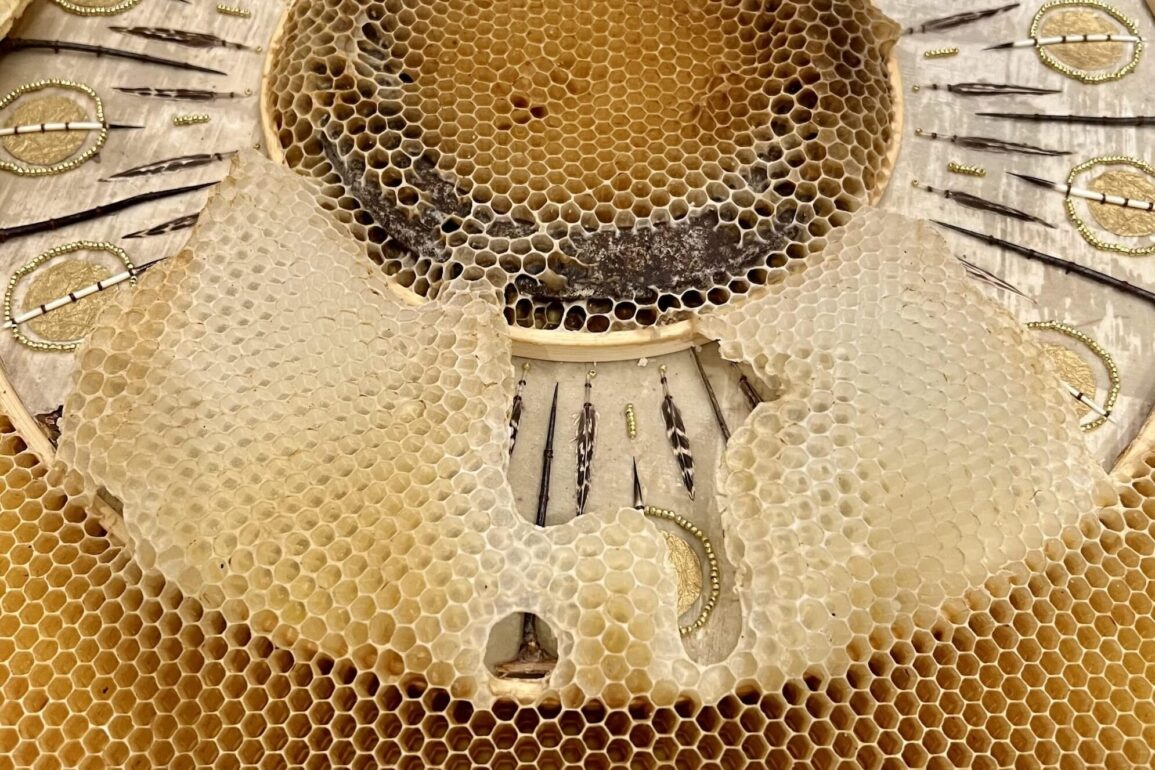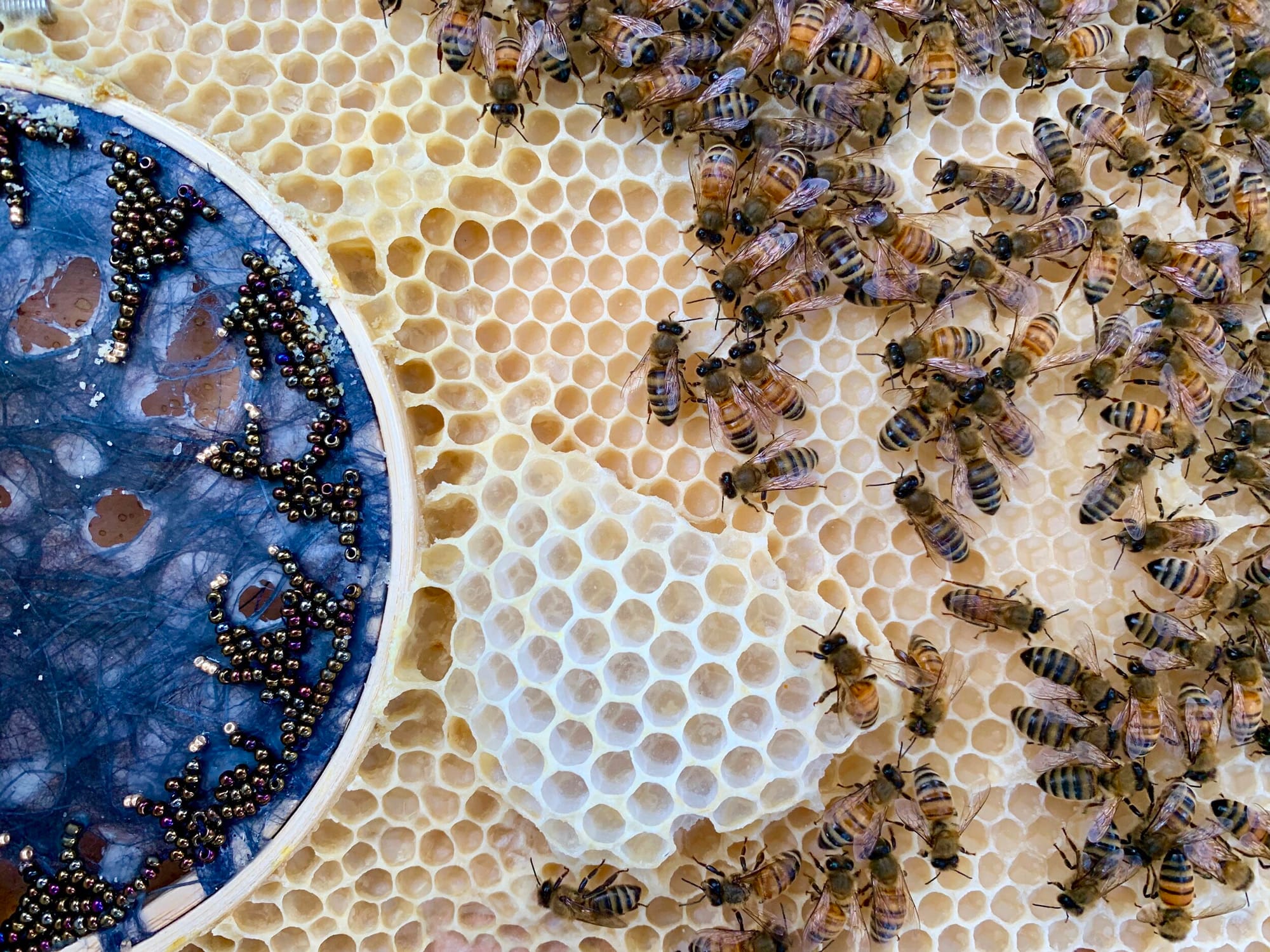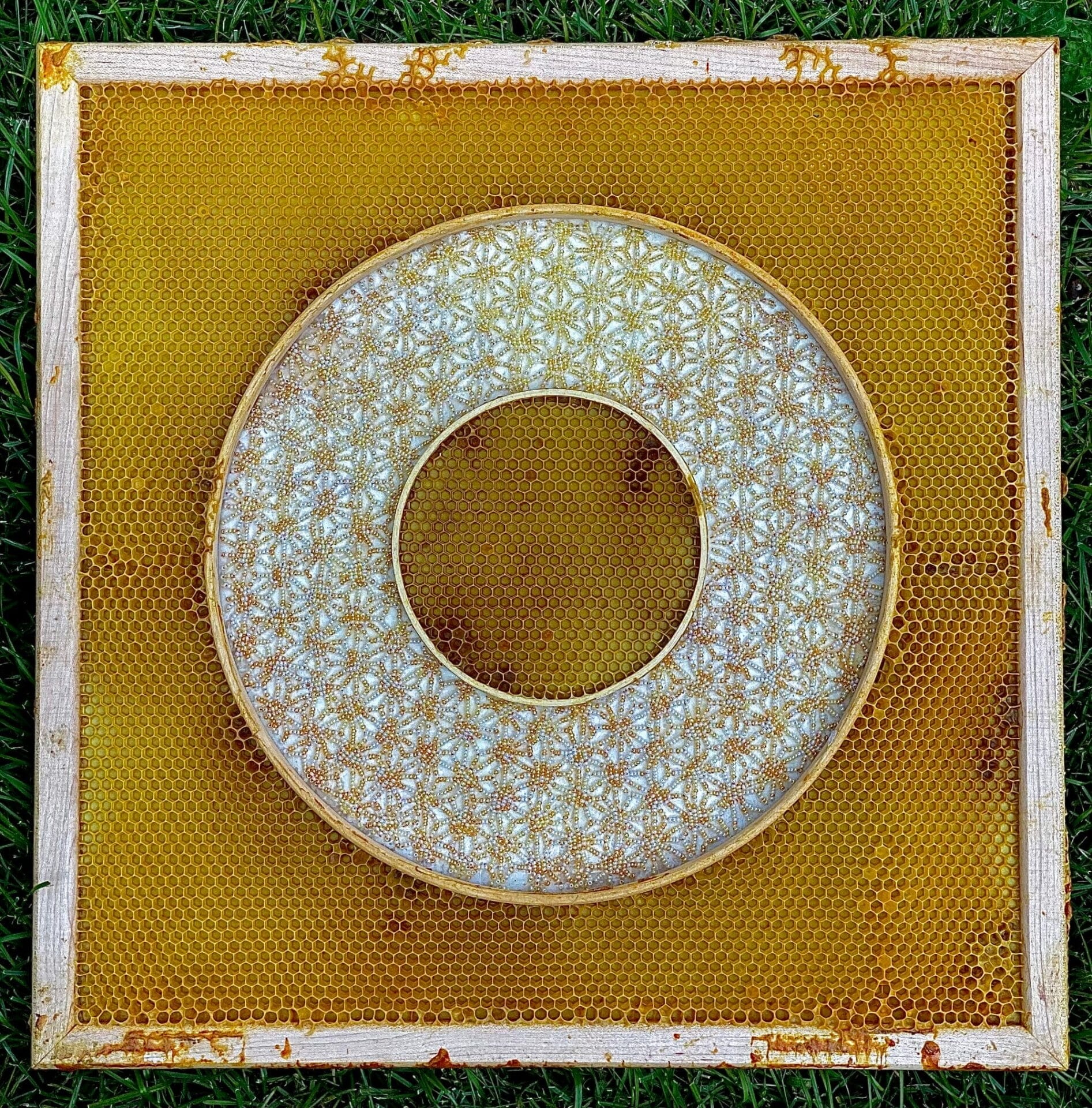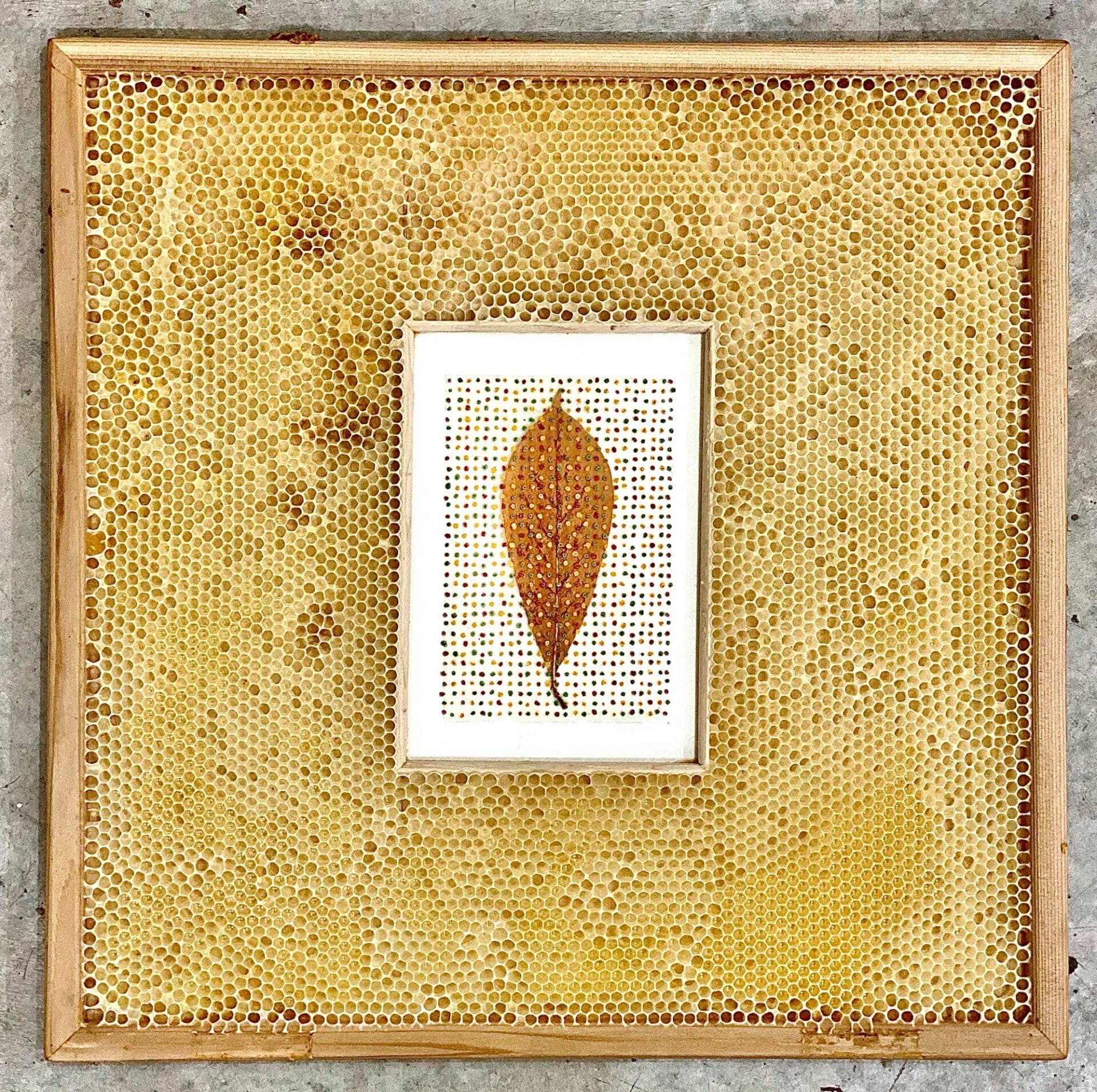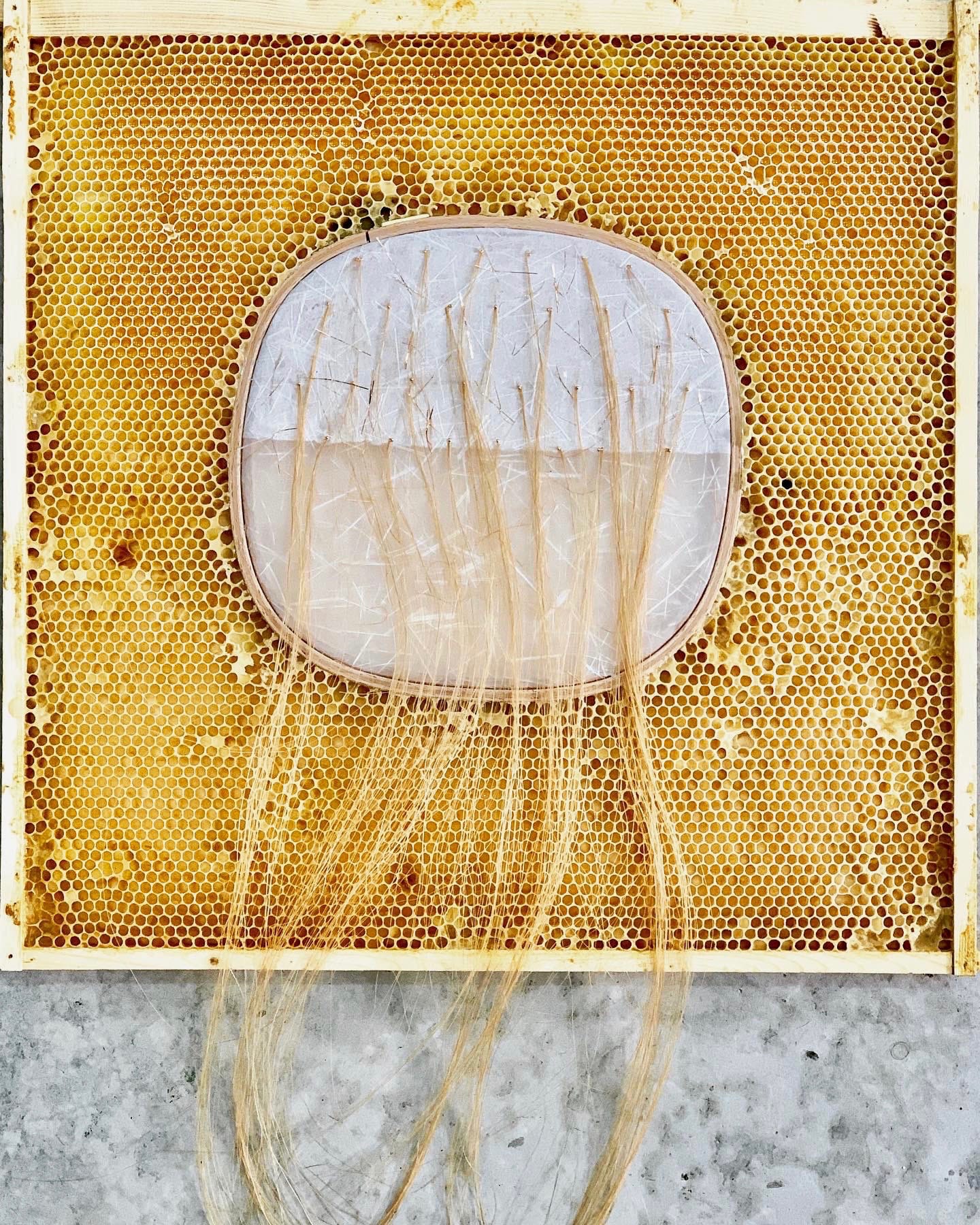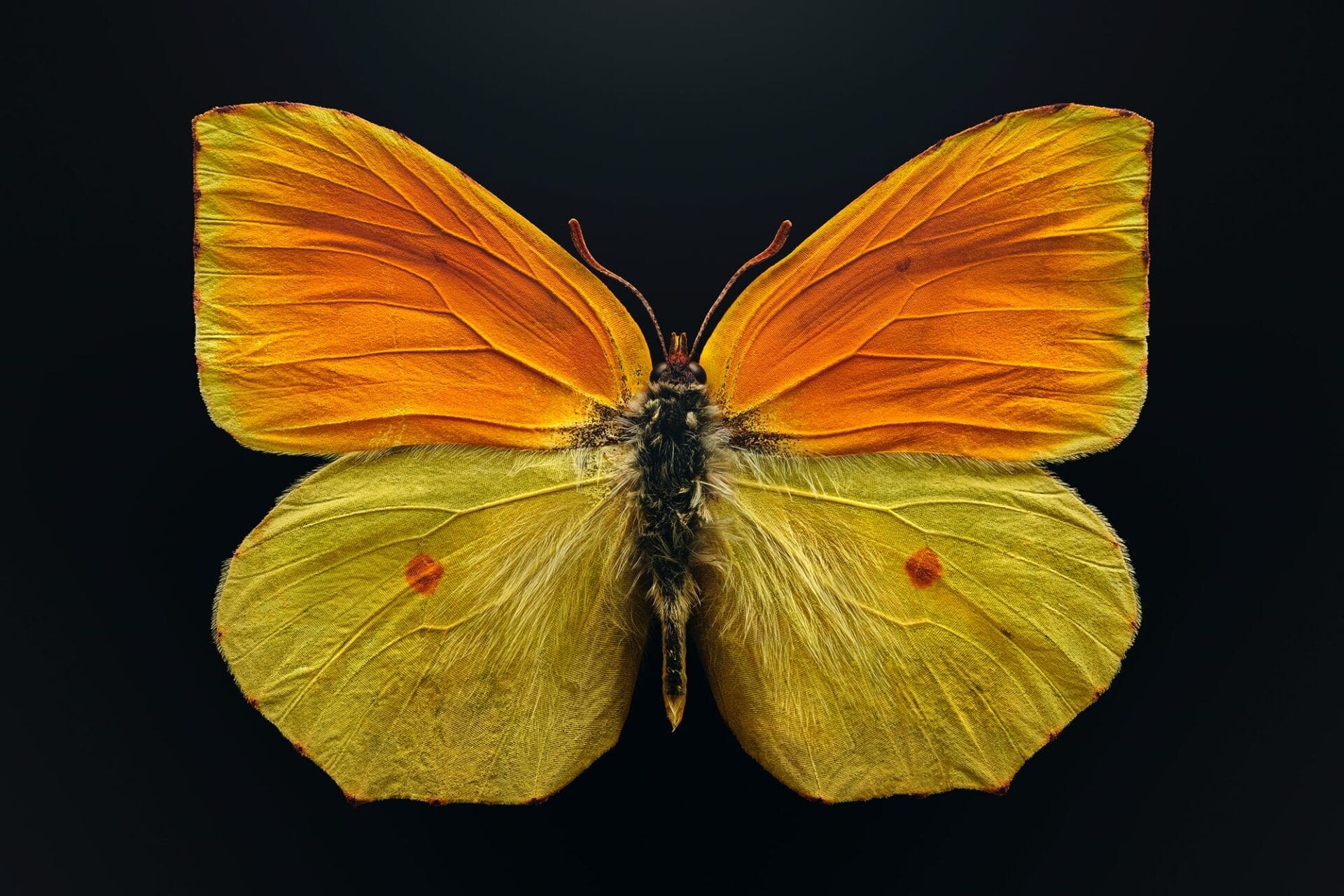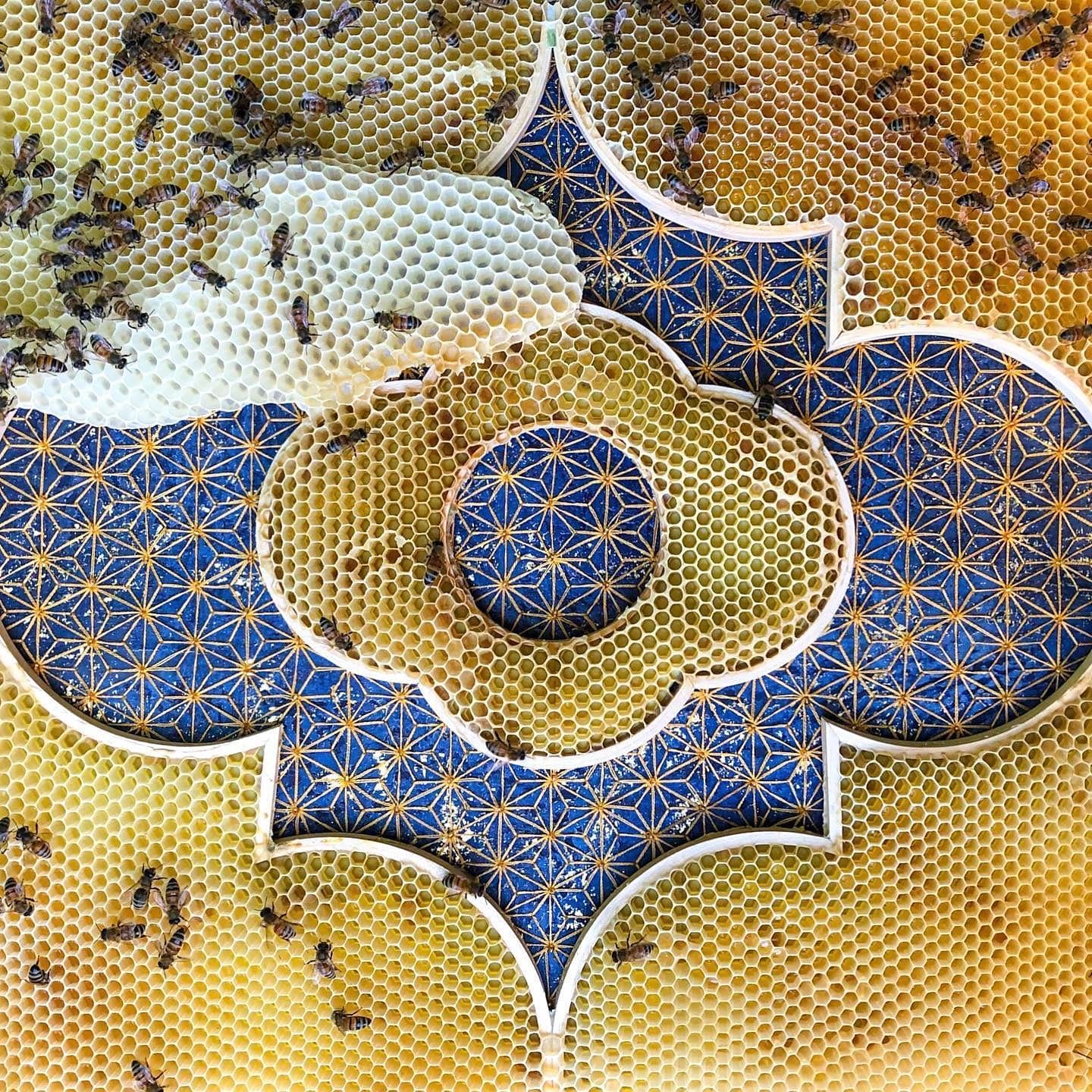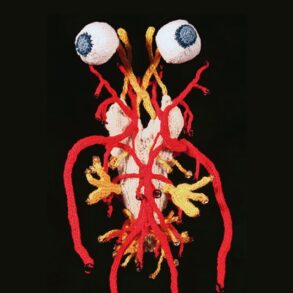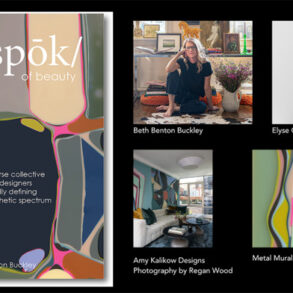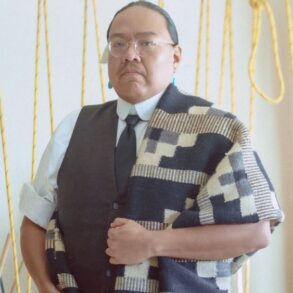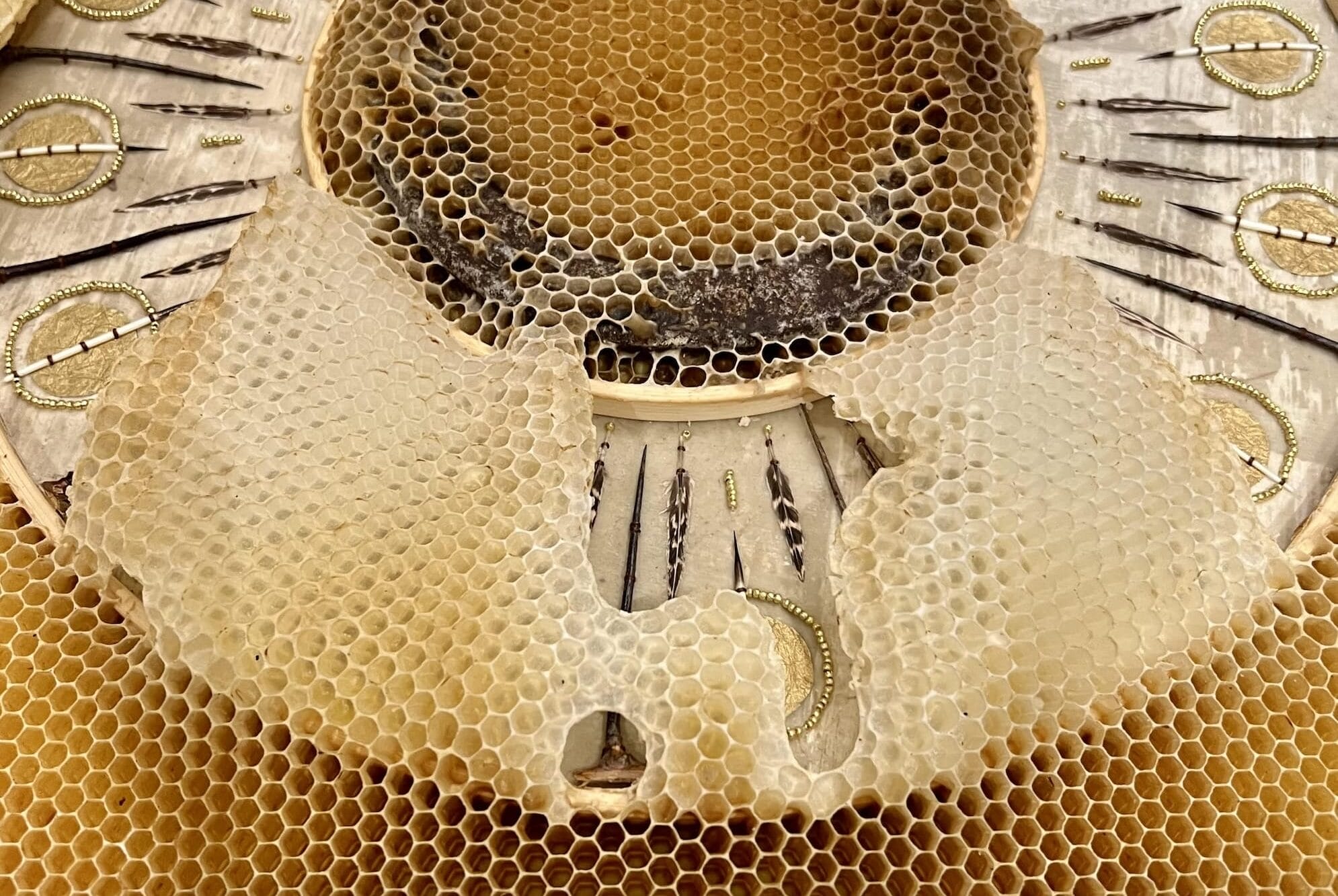
Honeybees Have the Final Say in Ava Roth’s Collaborative Sculptures
Bees get a bad rap a lot of the time, despite the immense benefits they provide—and those go way beyond honey. Responsible for pollinating one-third of the world’s food supply, the buzzing insects ensure we’re able to enjoy coffee, tomatoes, strawberries, vanilla, and myriad other kinds of produce.
The climate crisis, habitat destruction, pesticides, and invasive species are among numerous factors that have led to an unprecedented decline in honeybee populations during the past two decades. But for Toronto-based artist Ava Roth (previously), visibility is a major tenet of her unique, collaborative practice.
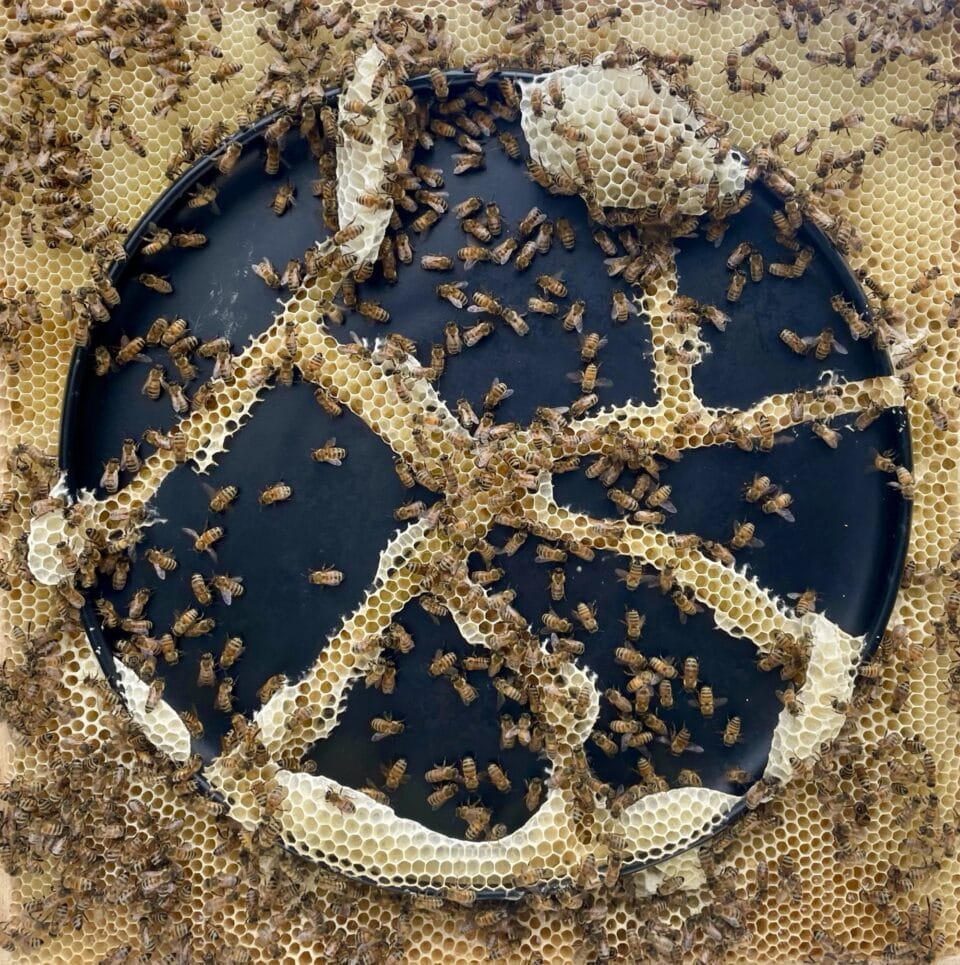
Within concentric wooden frames, Roth employs encaustic and embroiders patterns with thread and beads, creating the groundwork for the next phase of her process: inserting individual works into her hive and inviting the bees to determine the final composition.
The human relationship to nature, mirrored by what Roth describes as the”tension between control and wildness,” considers our role in shaping nature to our own needs and the consequences of our actions.
Bees instinctively build walls of prismatic cells to protect their brood and store honey and pollen, and the organic geometry doubles in Roth’s pieces not only as an iconic aesthetic but also as a reminder of the creatures’ remarkable abilities.
Recently, the artist has been experimenting with three-dimensional structures and round frames, departing from the rectangular format traditionally associated with hives. She’s also embarked on a new kintsugi-style series in which the bees “mend” broken shards of pottery with their comb.
Find more on Roth’s website and Instagram.
